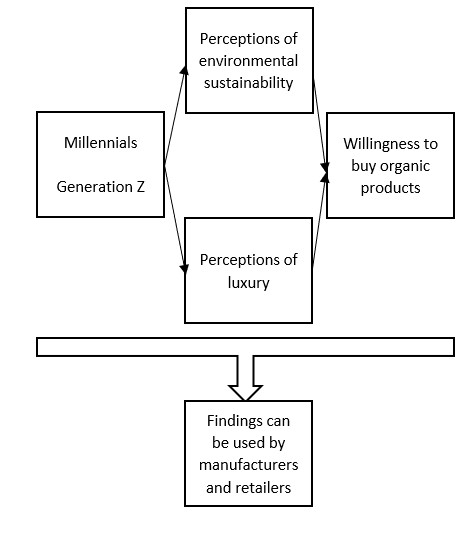
The generational cohorts known as Millennials and Generation Z exhibit distinct behaviors and attitudes, differing significantly from older generations in various aspects including environmental perceptions and purchasing behaviors. Notably, organic foods are sometimes associated with luxury, as highlighted in existing literature. This study aims to explore how Greek Millennial and Gen Z consumers perceive the concept of luxury in relation to organic food products and how their views on environmental sustainability influence both their perceptions and purchasing behaviors. A structured questionnaire served as the research tool, utilizing the New Environmental Paradigm scale to assess respondents’ views on environmental sustainability. The data were analyzed using descriptive and inferential statistics, including tests for mean values, correlation coefficients, and regression models. The findings indicate that consumers’ perceptions of environmental sustainability positively impact their willingness to purchase organic foods. Additionally, there are noticeable differences between Millennial and Gen Z consumers in their perceptions of organic foods, and purchasing luxury foods positively correlates with the propensity to buy organic products. The findings of this research can be used by manufacturers and retailers in food sector.
Total file downloads: 36